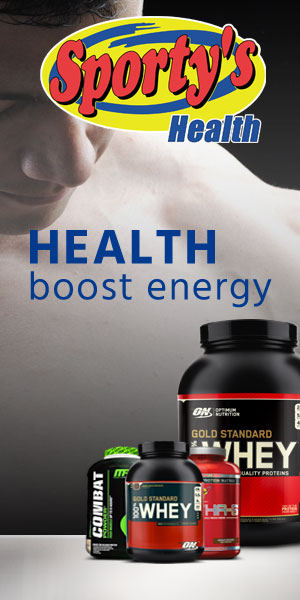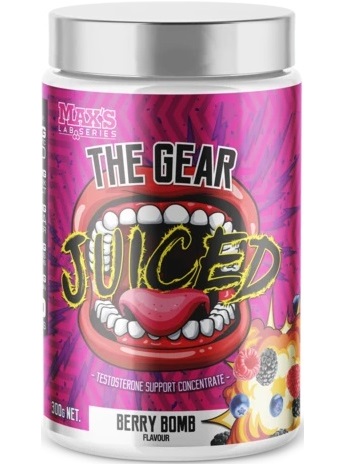Test is the holy grail of muscle-building hormones. It is naturally produced in males, and to a lesser degree in females. The biologically active form known as Free Test interacts with muscle cells and is the key driver of protein synthesis and muscle growth. Only a small fraction of the Test your body produces remains as Free Test, which limits your anabolic potential. Your physiology, age, training level, diet, lifestyle and overall health all affect Free Test levels, either positively or negatively.
In males, Test is mainly produced in the testes. It is an Androgenic hormone - which means it produces male characteristics like increased muscle mass, facial hair and a deep voice. It also plays an important role in male sex drive and fertility.
 Low Test
Low Test
System levels of Test are regulated by your Hypothalamus and Pituitary Gland. However as we age Test production naturally declines, which in turn can affect your body’s ability to recover and build muscle. But many other conditions can also reduce system Test levels. Generally, your levels vary throughout the day and usually peak during the morning between 7 - 10am and are lowest in the evenings. Test levels also increase after hard intense exercise, but can decrease following exhaustive endurance training. If testing shows a low Test level, causes can include:
- Age - Test production generally starts to decline each year after the age of 30
- Illness (including type 2 diabetes, kidney disease, high blood pressure)
- Medications - many can interfere with natural test production
- Over-training - training too hard, too often will reduce test production
Symptoms of Low Test
Younger healthy males shouldn’t have low Test; however modern lifestyles, pollution, stress, diet, and a hectic schedule can wreak havoc on healthy test levels. Some symptoms of low test levels include:
- Low energy levels
- Difficulty building muscle mass
- Decreased sex drive, hair loss or slow hair and nail growth
- Slow recovery from exercise
- Increased susceptibility to mild infections like colds
- Increased irritability
- Poor sleep quality
- Difficulty in concentrating
Getting Test Levels Up
Test production can be optimised by tackling the factors that are reducing its output. Key areas to address include:
- Sleep Quantity and Quality - Studies have shown sleep loss dramatically lowers Test levels. Getting a good 7 - 8 hours every night is the gold standard. To optimise test levels try to get to bed at the same time each night and make sure that you give yourself enough time to fall asleep and then get 7 - 8 hours of good sleep. Avoid caffeine in the 2 - 3 hours before bed, don’t spend too much time on your phone or computer (the blue light will keep you awake) or use a blue light filter program like f.lux. Also don’t do anything too strenuous in the hours before sleep.
- A Healthy Diet - including high quality sources of protein (lean red meat, chicken, fish, eggs, etc.) coupled with plenty of vegetables, moderate fruits and wholegrains, plus high quality supplements will set your body up for optimal hormone production. Avoid processed foods, fatty takeaways, and low quality snack foods like chips and biscuits. Keep alcohol in moderation or avoid it if possible. Adding high quality, proven supplements to your diet like Whey Protein, BCAA's and Creatine can also give your metabolism the edge.
- Exercise is Super Important for healthy Test levels - We all know exercise provides plenty of health benefits, but did you know that a hard session in the gym can significantly raise test levels. The best type of training is heavy resistance training of the large muscle groups like your legs, glutes, chest and back. High intensity interval training (HIIT) has also been shown to effectively raise test levels. On the other hand, slow steady exercise like walking and slow jogging doesn’t increase test levels. In fact, too much of this endurance type training can actually reduce hormone production and lead to a number of physiological issues.
Can Hormone levels be boosted by supplements?
There are a number of nutrients that are essential for healthy Test levels For example, cruciferous vegetables including broccoli, cauliflower, cabbage and brussel sprouts all contain indole-3 carbinol and 3,3'-diindolylmethane (DIM) which are compounds that can help keep Test levels high and Estro levels low.
Many other nutrients and herbal compounds have been investigated for their effect on Test levels and many have shown solid results in human and animal studies. Some examples of these compounds include D-Aspartic Acid, Tribulus Terrestris, Fenugreek and Ashwagandha.
Many of these compounds are used by people with low Test and poor libido, or by athletes who are trying to optimise their body’s Test production.
MAX has developed this advanced male support formula, THE GEAR JUICED, based on a combination of proven food derived nutrients and herbal extracts to help support your training goals. To see the full formula click the Ingredients Tab above.
Key Ingredients in MAX’S THE GEAR JUICED:
TEST SUPPORT COMPLEX
- D-Aspartic Acid is an amino acid that has been shown in multiple animal and human studies to stimulate luteinizing hormone, increase Test levels, improve sperm quality and motility, and increase Growth Hormone.
- Fenugreek Seed Extract has been used for centuries as a medicinal plant to treat a wide range of ailments. One of the key active ingredients of Fenugreek is Protodioscin which is thought to be the main stimulant of increased Test production. Several studies have in fact shown significant increases. One recent study reported up to 46% increase in Test in 90% of the study population over 12 weeks. Fenugreek is a safe and effective Test stimulant.
- Organic Maca Powder is derived from the peruvian Maca plant. It has been traditionally used to enhance fertility and libido.Studies have demonstrated a hormone balancing action with an associated increase in sexual desire. Maca has also been linked in studies to increased exercise performance.
- Ashwagandha is a herb commonly used in Ayurvedic medicine to promote youthful vigor, enhance muscle strength and endurance, and improve overall health. Known as an adaptogen, In one 2019 study, Ashwagandha supplementation showed an 18% increase in DHEA, and a 15% increase in Test in a group of 50 men aged 40 - 70 years over 8 weeks
- Tribulus Terrestris has been reported to boost Test in some animal studies, however it’s major benefit is to increase sex drive and libido in both men and women.
- Laxogenin is a compound derived from the Plant Smilax Sieboldii. Laxogenin belongs to a class of plant chemicals known as brassinosteroids. Animal studies of brassinosteroids have shown significant anabolic response with minimal or no androgenic side effects
ESTRO SUPPRESSION BLEND
- DIIM or 3,3′-Diindolylmethane is a compound derived from the digestion of indole-3-carbinol, found in cruciferous vegetables such as broccoli, Brussel sprouts, cabbage and kale. Multiple studies have shown it to be a strong anti-Estro nutrient which helps to inhibit the conversion of free Test to androgenic and Estroic metabolites including DHT and estradiol.
- Resveratrol is a naturally occurring polyphenol that occurs in a number of plant species including red grape skins and other fruits and vegetables. It has been shown in both animal and human studies to reduce androgenic compounds in circulation, helping to keep Free Test levels high.
VASODILATION COMPLEX
L-Citrulline, L-Arginine and Betaine combine to boost nitric oxide to produce a strong vasodilation effect, helping to boost the levels of nitric oxide in epithelial cells for increased blood flow and delivery of anabolic nutrients.






 Low Test
Low Test